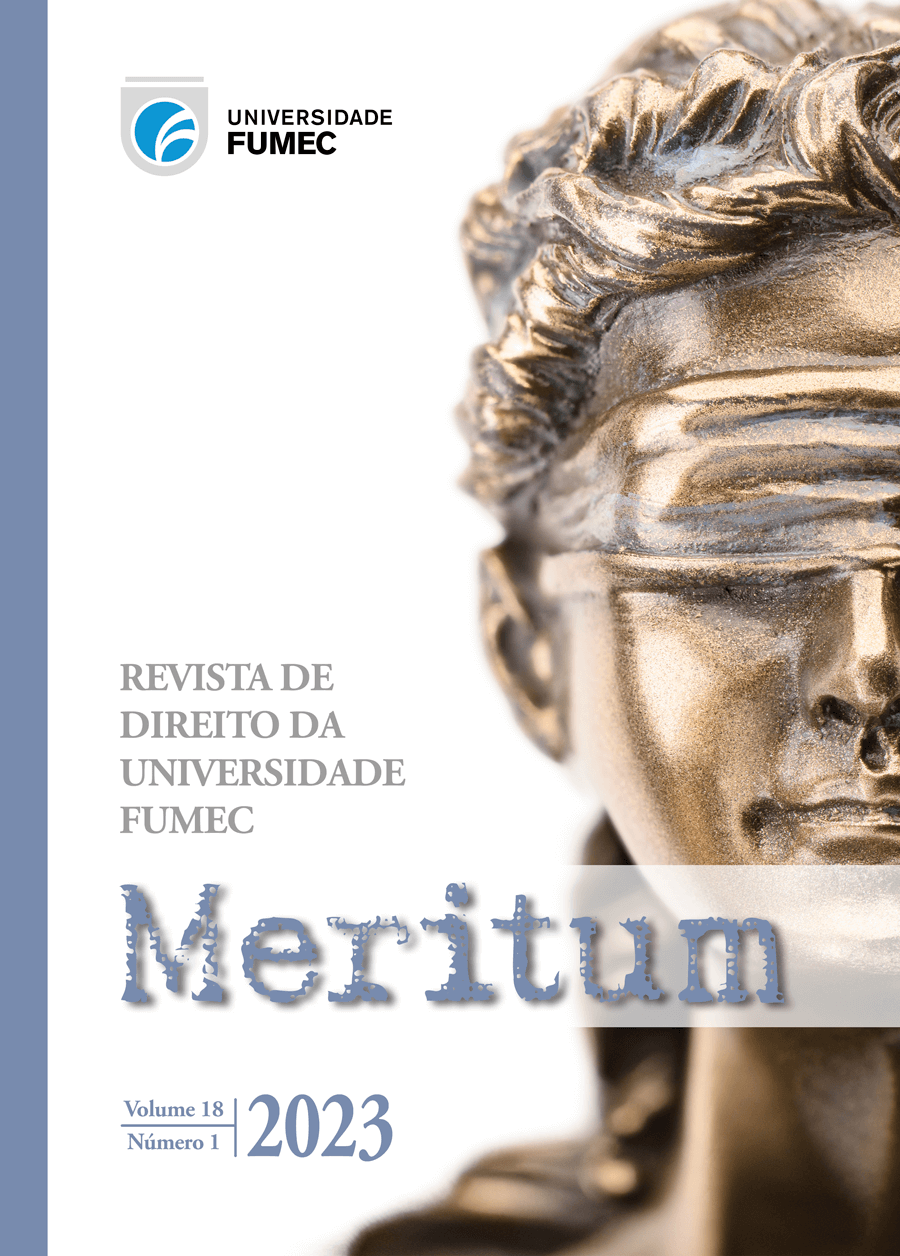THE BACKLASH EFFECT IN THE CASE OF INQUIRY 4.781
DOI:
https://doi.org/10.46560/meritum.v18i1.9327Abstract
ABSTRACT: Within a democracy, reactions to State acts are expected and even desirable. Despite that, these reactions can acquire contours of different intensities, and at their limit, they can even cause social upheavals and setbacks in acquired rights. The reaction to judicial acts, in particular, have been studied by specialized literature under the nickname of backlash or backlash effect. In a context of cooling of the process of expansion of democratic ideas and regimes, and still under the influence of political communication through the internet and social networks, the backlash is analyzed here according to its insertion in the theories of Ronald Dworkin, Michael Klarman´s, Cass Sunstein and Robert Post and Reva Siegel. Then, with the theoretical framework defined, this article is directed to the study of the political repercussion triggered around Inquérito 4.781, the so-called “Inquérito das fake news”, which runs under secrecy in the Federal Supreme Court. Without ignoring the limitations of access to the entire content of the Survey, the research that supports this article, focusing on its political reverberations, was based on the qualitative research strategy proposed by Samuel Sales Fonteles and on the study of speeches given about the Survey, with the purpose of evaluating whether the backlash phenomenon has been verified in this case and its possible impact. The hypothesis is that the reactions to the inquiry constituted a form of low or medium impact backlash, specifically driven by the current President of the Republic and his allies.
Downloads
Published
Issue
Section
License
Autores que publicam nesta revista concordam com os seguintes termos:
- Autores mantém os direitos autorais e concedem à revista o direito de primeira publicação, com o trabalho simultaneamente licenciado sob a Licença Creative Commons Attribution que permite o compartilhamento do trabalho com reconhecimento da autoria e publicação inicial nesta revista;
- Autores têm autorização para assumir contratos adicionais separadamente, para distribuição não-exclusiva da versão do trabalho publicada nesta revista (ex.: publicar em repositório institucional ou como capítulo de livro), com reconhecimento de autoria e publicação inicial nesta revista;
- Autores têm permissão e são estimulados a publicar e distribuir seu trabalho online (ex.: em repositórios institucionais ou na sua página pessoal) a qualquer ponto antes ou durante o processo editorial, já que isso pode gerar alterações produtivas, bem como aumentar o impacto e a citação do trabalho publicado (Veja O Efeito do Acesso Livre).






